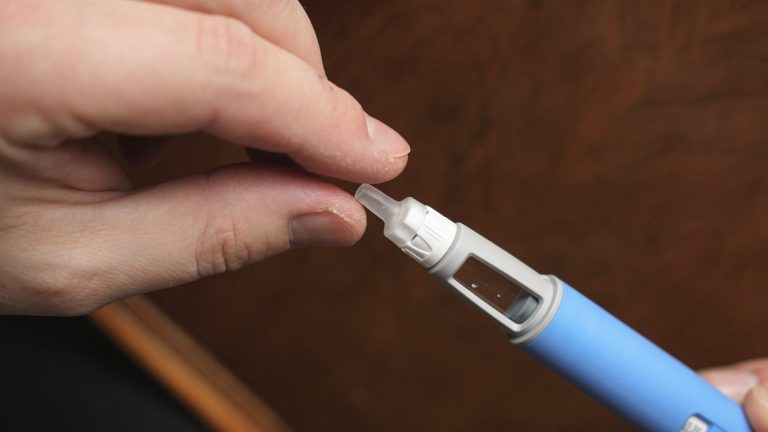The effects of bariatric surgery are invaluable. Surgeon: “Patients not only lose weight, but above all, they are healthier”

Patients who had diabetes before surgery no longer suffer from diabetes. Their hypertension and lipid metabolism disorders disappear. The health-promoting effects are enormous – says prof. Wiesław Tarnowski, head of the Department of General, Oncological and Bariatric Surgery at the hospital. Orłowski CMKP. Doctors dealing with obesity treatment hope to continue the KOS BAR program in 2024, which has changed the situation of obese patients who should undergo surgery.
Katarzyna Pinkosz, Wprost: Up to 20 percent. people in Poland suffer from obesity. Which of them should be treated surgically?
Prof. Wiesław Tarnowski: There are two basic criteria to qualify for bariatric surgery; one of them must be fulfilled. First: the patient must have a BMI above 35 and concomitant diseases resulting from obesity. Second: the patient has a BMI of 40 or more (in this case he does not have to have other diseases). Of course, he must want to be treated this way.
Everyone suffering from obesity would like to weigh less, but is often afraid of bariatric surgery. Is she safe now?
She is safe; otherwise it would not be performed. Of course, surgery involves the risk of complications; regardless of the type of surgery, whether it be appendix surgery, gallbladder surgery or bariatric surgery.
We introduce many pre-operative measures to minimize complications.
Bariatric surgery is one of the safest surgeries. The number of complications is very small because we have the highest quality equipment and well-trained people.
The patient is prepared in detail for the operation. Moreover, we impose certain conditions that the patient must meet in order to qualify for surgery. These include, for example, weight reduction in the pre-operative period, compliance with specific recommendations, prehabilitation, i.e. specific exercises performed under the supervision of our physiotherapists. If these conditions are met, the patient is allowed to undergo surgery. If he does not meet any of the conditions, unfortunately he will not be operated on. We try to help those who care.
Most people think that bariatric surgery is simply a reduction of the stomach. What exactly is it?
There are many types of surgery in bariatric surgery. The most popular is sleeve gastrectomy, i.e. surgery to reduce the stomach. 4/5 of the stomach is then removed, leaving a volume of approximately 100-150 ml.
The most important task is to choose the right surgery for the patient. Another one will be best for a patient with acid reflux; another for a patient who tends to eat larger amounts of sweets, and yet another for a person with advanced diabetes.
You talk to each patient first…
This is basic. The patient is seen by specialists, e.g. a diabetologist, endocrinologist, cardiologist, pulmonologist, depending on the accompanying diseases. It must be remembered that most patients are seriously ill and have a number of other diseases. After performing the tests, a decision is made about what to do next.
The KOS-BAR pilot program (coordinated care for obese patients undergoing bariatric surgery) has been in operation since 2022. What has changed in the situation of people with obesity?
Before the KOS-BAR program was created, the “path” to bariatric surgery for patients was different. Often, the patient had to finance e.g. tests and consultations himself, while the operation was performed under health insurance. As part of the KOS-BAR program, all tests and consultations are carried out under health insurance. The second important thing is the implementation of prehabilitation, i.e. preparation for surgery. It includes, among others: physiotherapy. For some patients, these are the first exercises in many years, or even the first in their lives. Thanks to this, the patient’s health condition significantly improves. The patient is informed about the specific date within which tests and consultations must be completed in order to arrive before the planned surgery. It is worth noting that centers qualified for the KOS-BAR program must meet certain criteria, including: equipment, the quality of care they offer. Thanks to this, bariatric surgery is now at the same level in all centers participating in the pilot.
It is also important that the patient after the procedure is covered by a postoperative control system. Data is collected and reported to the ministry, thanks to which we know whether the patient is being treated well. We monitor him for any complications.
The first patients under the KOS BAR program were operated on a year ago. Do you see the effects of the program?
I noticed great interest in the KOS-BAR program. We didn’t have that many patients before. Patients began to want to be treated. The quality of care has improved. We purchased specialized rehabilitation equipment with different technical parameters, not available in sports stores.
Thanks to the fact that patients are monitored and have to undergo tests, we have control over them and we are able to say whether all these actions make sense. We see that patients lose weight and feel better after surgery. Patients who had diabetes before joining the program no longer have diabetes after completing it. Symptoms related to hypertension or lipid metabolism disorders disappear. The health-promoting effects are enormous.
Global data show that the number of cancers in the group of operated patients is incomparably lower than in obese patients who did not undergo surgical treatment. Similar data apply to heart attacks and strokes.
Approximately 2,500 people were operated on in Poland as part of the KOS BAR program; for now, it’s a small number. These patients will be followed for the next year; after this time we will have full data. However, we see on an ongoing basis that patients feel better.
KOS BAR has proven that it is not only about losing unnecessary kilograms, but also about health-promoting effects?
Losing weight is one of the goals of the program, but the most important thing is the health-promoting effect. It is also a huge saving for the health care system. These patients required antidiabetic, antihypertensive medications; After surgery, they are often no longer necessary or their number can be reduced. These are savings for the health care system.
However, under the KOS BAR pilot program, surgical operations can only be performed until the end of 2023. Patients will be followed up for another year, but the program is ending for now. But are you fighting for its extension?
Its surgical part is coming to an end, but the program will continue until the end of 2024, because operated patients will be under our supervision for another year.
We are fighting for this model of care to be included in the benefit package. We do not want to extend the pilot program for a year because we see that it works, there is no point in checking. It would be good for the program to be conducted in as many centers as possible so that patients could benefit from it to a greater extent. However, an audit must be carried out to assess which centers meet the criteria.
Should the KOS BAR program be improved? If so, in what way?
Many things need improvement. It happens, for example, that a patient under the care of a doctor, psychologist or dietitian loses weight and decides not to undergo surgery. Very good, but it is a mistake that the National Health Fund does not pay us for investing in a patient who has achieved his goal to such an extent that he does not need surgery. This should be improved because not every person joining the program needs to be operated on. For some people, a change in diet and the care of a psychologist and dietitian are enough to achieve health-promoting effects. The National Health Fund should pay us for this stage.
How long did the patient wait for surgery under the KOS BAR program?
We tried to ensure that the patient went through the preparation for surgery within half a year.
And today? Are patients still eligible for treatment?
They are accepted, but not under the KOS BAR program, because the pilot of the surgical part has already been completed. However, we do not refuse patients treatment or surgery. We continue to treat and operate, but at the same time we hope that the program will be included in the benefit package because it is excellent.
What about obese patients who are not candidates for bariatric surgery?
Currently, such care is not financed by the National Health Fund. We are trying to open an obesity treatment clinic. We have specialists who have been dealing with obese patients for years, but it must be financed by the National Health Fund. For now, this is not possible for financial reasons. A network of clinics for the treatment of obesity and its complications should be established throughout the country; not only in large cities, but also in smaller towns, because especially there, patients do not know where to go for such help, and the family doctor does not know where to refer because he does not have agreements with specific centers. Such a network of clinics would certainly make it easier to direct patients to specific specialists, for tests and to offer them an appropriate form of treatment.
Prof. Wiesław Tarnowski is the head of the Department of General, Oncological and Bariatric Surgery and deputy director for clinical affairs of SPSK. prof. W. Orłowski CMKP; president-elect of the Society of Polish Surgeons.






